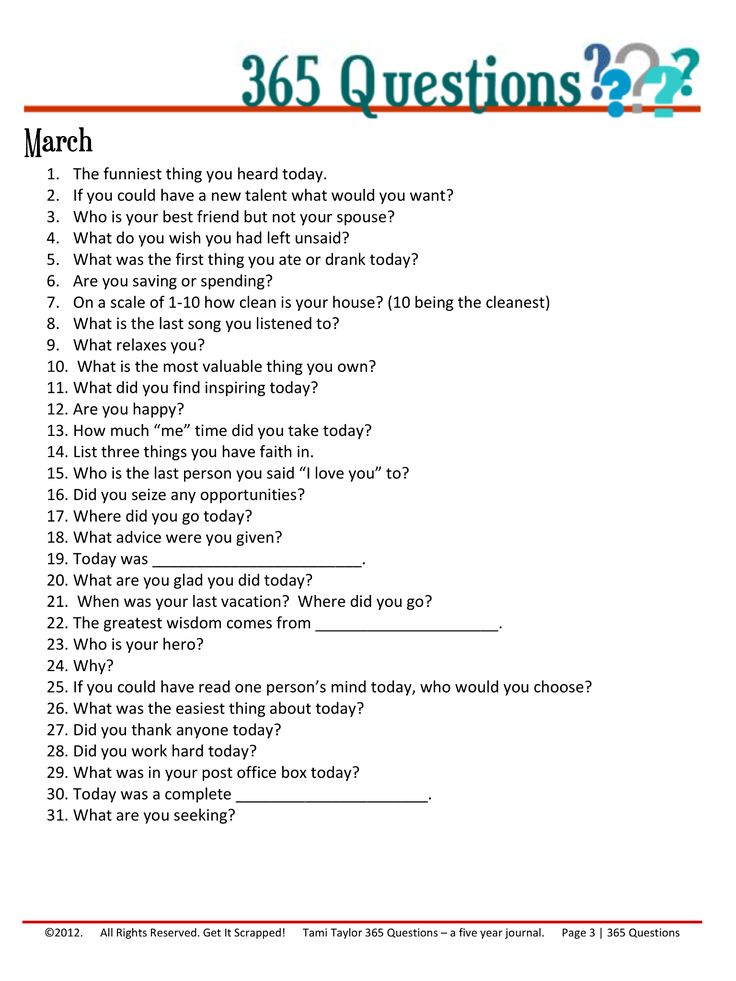People that complain
The Three Types of Complaining
One of my great joys in life is eavesdropping. As a psychologist, I have long been interested in people—in what they think, feel, and how they behave. I enjoy watching people’s facial expressions, listening to their word choices, and tracking their emotional tone. Among my favorite venues for people-watching is the airport. Unlike restaurants or movie theaters, airports are locations where people are placed in close quarters and where I have nothing better to do than listen in to the lives of others.
Unfortunately, a lot of what I overhear are complaints. I hear people gripe about delayed flights and uncomfortable seats. I listen to business people make calls in which they tear down co-workers and competitors alike. I bear witness to a litany of problems: bad weather, wars, poor economic performance, nosy in-laws, and broken bones. You’d think the world was ending.
The Psychology of Complaining
If complaining is so awful, why is it so prevalent? It turns out that complaining has captured the attention of many of my colleagues. There is a growing body of research addressing complaining: what it is and when and why it happens. To begin with, complaining is simply expressing dissatisfaction. This usually happens verbally, as in the case of two people on a date commenting on the awful dinner they have been served. For consumers, it can happen through online feedback forms or customer service counters—but consumer complaints are a separate matter.
Complaining usually happens in the wake of a negative situation. Traffic was worse than expected. The movie was disappointing. The contractor did shoddy work. The city council should never have approved that new development. Of course, it is not just situations but also personal factors that are involved. You’ll notice, for example, that some people tend to complain while others hold their tongues. Indeed, there is a “complaint threshold” that must be reached before someone decides to grumble.
This threshold is still being explored but it likely has many facets. One may be the “locus of control,” or how much control a person feels she has in a situation. If an airline misplaces your suitcase, for instance, you are more likely to lodge a complaint because you feel that your notification of the problem will help to solve it. There may be other personal factors involved as well, such as tolerance for conflict, age, and the desire to present one’s self positively.
One may be the “locus of control,” or how much control a person feels she has in a situation. If an airline misplaces your suitcase, for instance, you are more likely to lodge a complaint because you feel that your notification of the problem will help to solve it. There may be other personal factors involved as well, such as tolerance for conflict, age, and the desire to present one’s self positively.
The Flavors of Complaints
Source: CC-BY-SA 3.0 Nick Youngson
It is useful to understand that complaining (and, by extension, complainers) come in different types. There are those who never seem to be satisfied. These are known as chronic complainers. They have a tendency to ruminate on problems and to focus on setbacks over progress. Some research suggests that making a habit of complaining can “re-wire” the brain so that those particular thinking orientations become ingrained. It is possible to re-wire this re-wiring to make it more positive, of course, but chronic complainers probably don’t think it would work all that well.
The second type of complaint is the familiar “venting.” Venting is expressing emotional dissatisfaction. It turns out that people who vent have an agenda. They tend to be focused on themselves and their own—presumably negative—experience. By showing their anger, frustration, or disappointment, they are soliciting attention from their confidantes. They can feel validated by receiving attention and sympathy. Venters are particularly likely to discount advice and proposed solutions to their problems. They aren’t looking to solve anything; they simply want validation.
One unfortunate downside to both venting and to chronic complaining is that it can dampen people’s moods. In one series of studies, researchers tracked people’s moods before and after hearing a complaint. As predicted, listening to gripes made people feel worse. What’s more, the complainer also felt worse!
How to Complain Well
The last type of complaint is known as the “instrumental complaint. ” Unlike its wrinkle-nosed conceptual cousins, the instrumental complaint is all about solving problems. When you confront your romantic partner about overspending on the credit card, that could be instrumental complaining. Especially if you focus on the impact of the problem, the importance of change, and cooperate to create a plan for change. One study suggests that these types of complaints make up fewer than 25 percent of all complaints.
” Unlike its wrinkle-nosed conceptual cousins, the instrumental complaint is all about solving problems. When you confront your romantic partner about overspending on the credit card, that could be instrumental complaining. Especially if you focus on the impact of the problem, the importance of change, and cooperate to create a plan for change. One study suggests that these types of complaints make up fewer than 25 percent of all complaints.
In one study, researchers found that happy people complain less. They also looked at the evidence that the happy folks in their study were more mindful. They hypothesize that more cheerful folks are likely to complain more mindfully—more strategically if you will—and with a specific goal in mind. When viewed this way, a rough guide for complaining emerges:
- Avoid dampening your mood by complaining only rarely
- Complain only in instances where you believe it will affect real and positive change
- Consider whether affirmation or some other strategy will work instead of complaining
- Limit your exposure to complaining by limiting your exposure to complainers
Are you a chronic complainer? Here's how a 'complaint cleanse' can help
When Kaia Roman’s epigenetics business failed in 2014, she spiraled into a depression.
“What would come out of my mouth first was a complaint,” Roman told NBC News. “I wasn’t being a very positive person.”
Roman, who lives in Santa Cruz, California, says she would vent to anyone who would listen — about the traffic, the weather, or anything that inconvenienced her.
A friend recommended she give up complaining for a month, advising that it would help reframe her mind.
Roman, 43, chronicled the experience in her book “The Joy Plan: How I Took 30 Days to Stop Worrying, Quit Complaining, and Find Ridiculous Happiness.”
Now a successful author and school teacher, she says forgoing gripes changed her life in “miraculous” ways.
But she says complaining does have an important purpose — it tells us that something in our lives needs to change.
“But I think we can get stuck there by focusing on what we don’t want instead of on what we do want,” she says.
Why we complain
We complain when we feel there is a significant gap between an expectation and reality, according to Dr. Guy Winch, author of the book “The Squeaky Wheel: Complaining the Right Way to Get Results, Improve Your Relationships, and Enhance Self-Esteem.”
Guy Winch, author of the book “The Squeaky Wheel: Complaining the Right Way to Get Results, Improve Your Relationships, and Enhance Self-Esteem.”
Complaining is also a bonding mechanism, according to the New York City psychologist.
“Complaints can make us feel like we connect with someone because we have a mutual dissatisfaction about something,” he says.
But people tend to confuse complaining with venting, says Winch.
When we complain, we want to fix an injustice, he says. For example, if a mechanic overcharged you for an oil change, you’re likely to complain to bring down the price.
But when we vent, we are getting frustration out of our systems — for example, ranting to a coworker because traffic made you late.
Some griping is healthy, says Winch — but too much can fill us with constant stress hormones. It can also infect those around us with our negativity, he adds.
“We are just really stressing ourselves out and having a really negative perception of the world, and there’s a price you pay for that,” he says.
Are you griping too much?
Look at your text messages and emails to see if there is a negative theme to how you communicate, advises Winch.
He says most people communicate with around an 80 percent positive to a 20 percent negative ratio.
“If it’s a 50/50, or you are heavily on the negative side, that’s a problem,” he says.
Try a “complaint cleanse”
This month, author and poet Cleo Wade urged her 500,000 Instagram followers to join her in a week-long “complaint cleanse.”
https://www.instagram.com/p/BvsEjJXnTm2
Complaints have “no magic,” Wade stated in an Instagram post, which received nearly 23,000 likes. She urged her followers to let go of complaints when they felt the need to voice them out loud.
Roman, who went on her complaint cleanse after her business failed, says giving up negativity for a month reformed her outlook and made her a more positive person.
During her cleanse, whenever she felt like complaining, she focused on what she was grateful for.
Gratitude activates dopamine in the brain and creates the conditions for optimism, she explains.
“When I fall asleep at night I go through the alphabet, and for every letter I think of something that I’m grateful for,” Roman says.
She says she also kept a “gratitude notebook” where she wrote down everything she was grateful for that day.
While complaint cleanses can help shift our focus, there’s a caveat, according to Winch. When we give up complaining, we aren’t necessarily giving up thinking about the things that bother us, he says, or taking action to solve them.
Learn to complain constructively
Winch says complaints do have a kind of magic when done right.
“Complaining is a way to realign expectations to improve our relationships; to get a satisfactory result to actually make some change that we want,” says Winch.
Instead of forgoing complaints entirely, Winch says we should give up complaints that are petty and unnecessary.
Ask yourself, “Is it worth it?”
“We have to really look at what matters and what doesn’t, because with things that don’t matter we need to let go, and the things that matter we have to address,” says Winch.
For example, if the traffic made you late, complaining about it is not worth your energy because there isn’t anything you can do about it.
However, if your spouse has a habit of being late, and making you late as a result, you have a right to complain.
But you need to be strategic about it, Winch explains. If you go on a rant, your spouse will likely get defensive and not change his behavior.
Put your grievance in a 'complaint sandwich' — a complaint sandwiched between two positive statements.
Winch advises putting your grievance in a “complaint sandwich” — that is, a complaint sandwiched between two positive statements.
The first slice should be a positive statement devised to prevent your spouse from getting defensive.
The complaint should be simple, Winch says. Don’t list all the times he was late in the past. Stay calm and focus only on the current situation.
Don’t list all the times he was late in the past. Stay calm and focus only on the current situation.
The final slice should motivate your spouse to change his behavior — a positive statement that conveys a message of “If you respect what I am asking, things will be good between us,” Winch says.
“Now it’s much easier for the other person to hear something like that than a diatribe about how disrespectful their lateness is,” Winch says.
Before you complain, understand your feelings behind it
Roman says going on a complaint cleanse taught her the importance of understanding the emotions behind her dissatisfaction.
She wasn’t really angry about the traffic or the weather, she explains — she was upset because her business failed.
“I have learned that it’s more important how I’m feeling before I take action than just go into action when I’m not in the right state of mind, because it changes the outcome of whatever action I’m taking,” Roman says.
MORE MENTAL HEALTH HELP
- How to relax and tap into a zen feeling (almost instantly)
- This daily gratitude routine can train your brain to be happier
- How to take a mental health day
- Smiling can trick your brain into happiness — and boost your health
- A daily ritual that will help you de-stress (in just 5 minutes)
Want more tips like these? NBC News BETTER is obsessed with finding easier, healthier and smarter ways to live. Sign up for our newsletter and follow us on Facebook, Twitter and Instagram.
Sign up for our newsletter and follow us on Facebook, Twitter and Instagram.
How to communicate with a person who constantly complains
April 9, 2022 Life
Spoiler alert: you need to protect yourself.
Manfred Kets de Vries
Business coach, psychoanalyst, author of the books The Mystery of Leadership, The Leader on the Couch. A Clinical Approach to Changing People and Organizations.
Probably everyone encounters such people. Take, for example, Lisa.
Whenever she meets Peter, one of the leaders of the large retail chain where they both work, she wants to hide in a corner. Because Lisa knows ahead of time what's going to happen. Peter's face will be sad. He will begin by complaining about the difficulties in his work: stupid employees, optional contractors. Then he will speak about the authorities, who always oppress and do not think about ordinary people. After that, he will move on to a dreary story about an unfolding personal life. nine0003
nine0003
In the past, Lisa has tried to turn this flood of complaints into a more positive direction. She reminded me that everything was not so bad, offered to treat people easier and more condescendingly, gave advice. But in the end I realized that it was futile. And she began to simply avoid Peter.
This strategy is well founded. A person who is constantly doing poorly, not only suffers himself. It becomes toxic to everyone around.
How people who constantly complain harm themselves
According to psychologists, the habit of complaining has quite obvious physical consequences. When a person endlessly voices pessimistic, powerless experiences, a reconfiguration of neural connections occurs in his brain. As a result, negative thinking stereotypes become more stable. And for positive ones - for example, gratitude, trust, a sense of well-being - there is simply no place left.
Over time, those who think negatively all the time become addicted to it. They are attracted to drama - as an opportunity to feel sorry for themselves again and again. nine0003
nine0003
The habit of seeing the bad in everything affects work and life in general. The complaining person clearly sees the problems, but most often is not able to deal with them. After all, the search for a solution presupposes faith in success. And people with an established negative way of thinking are more accustomed and more pleasant to think that nothing will work out.
How people who complain all the time harm others
It's like passive smoking. You don't have to smoke yourself to inhale the harmful nicotine smoke - just stand next to someone who has a cigarette. Other people's complaints are the same smoke. nine0003
The human brain is arranged in such a way that we unconsciously try on the mood of those people who surround us. We get caught up in other people's emotions. This is the basis of empathy.
From an evolutionary point of view, empathy is a useful quality. She helps us survive. If people around us are scared, we also feel anxiety. And we flee, without wasting precious seconds to independently detect the danger and get scared. Empathy also allows us to quickly team up with others to defend ourselves against a threat together. nine0003
Empathy also allows us to quickly team up with others to defend ourselves against a threat together. nine0003
But this mechanism also has a downside. If someone close to you constantly complains, you can become infected with someone else's negative way of thinking. And before you realize it, you yourself will begin to behave the same way.
Should one always avoid those who complain
No. Not all complaints are harmful. There are also productive ones: they lead to the achievement of some result, although not always obvious.
For example, a person may complain to you in order to:
- Share their worries and fears. In return, you will give him the support he needs and thus help reduce stress. nine0044
- Report a concern. So this problem is brought to the surface, becomes available for discussion. And this is the first step towards finding a solution.
- Arouse sympathy and desire to help. Suppose that the same Peter could complain to Lisa in order to win her over to his side in some kind of conflict within their organization.

Productive complaints have one thing in common: they are situational and don't come up every day.
Chronic discontent is quite another thing. It is infinite and has no purpose. More precisely, once the goal may have been. For example, people often acquire the habit of complaining at an early age - in this way they attract the attention of their parents. But then it turns into a deeply ingrained pattern of behavior. And it can even become part of a person's personality. nine0003
This is what may have happened to Peter. Therefore, he ignored Lisa's advice. After all, if he followed them, the reasons for complaints could disappear, and this would threaten his inner worldview.
How to communicate with a person who often complains
Unfortunately, attempts to help such people are often ineffective, if not completely unsuccessful. The problem can be solved by psychotherapy sessions, but the person himself must realize its necessity.
If you are not a close relative who could persuade a complaining person to visit a specialist, your first task is to protect yourself. And only then, "at a safe distance", look for a way to help. nine0003
And only then, "at a safe distance", look for a way to help. nine0003
1. Set boundaries
The same Lisa should tell Peter that she is ready to listen to him, sympathize and give a couple of pieces of advice. But not ready to have a repetitive conversation over and over again. For the simple reason that chewing on the negative does not benefit either side.
2. Remind me that complaining can be productive or not.
Sometimes it's even good to complain about something. But complaints must have a purpose. Lisa should ask Peter what exactly he expects from others when he talks about his problems. nine0003
It's one thing if he needs help: Lisa is always ready to provide it. But if the purpose is solely to complain, and Peter does nothing to solve the problem, then it can be reported that the conversation is not constructive.
3. Change the subject to a more positive one
This is a way of trying to rewire a complaining person's brain from habitual negativity to something good. For example, if someone is crying about being busy all the time, you might say, “Wow, you lead such a busy life! And they can handle so many things at the same time!” Or to the phrase “I get so tired with children,” try responding with the following words: “Oh, I saw your boy recently, he is so groovy and optimistic. He has an amazing smile, just like yours!” nine0003
For example, if someone is crying about being busy all the time, you might say, “Wow, you lead such a busy life! And they can handle so many things at the same time!” Or to the phrase “I get so tired with children,” try responding with the following words: “Oh, I saw your boy recently, he is so groovy and optimistic. He has an amazing smile, just like yours!” nine0003
The world is full of complexities. But at the same time, there are many joys around, which you also need to learn to notice. It helps to break negative stereotypes in thinking. And in the end, it makes life easier not only for the one who complains, but for everyone around.
Read also 🧐
- How to Stop Complaining: The SEAL Officer Method
- How to help a loved one get out of depression
- 4 ways to solve any problem
Why people complain all the time and what can be done about it
Many people like to complain, and, as a rule, those who have the least reason to complain the most complain. What is it - a natural human need or a way to achieve what you want? When is it good to complain, and when is it better to pull yourself together? Psychologist Victoria Kaylin and life coach Laurent Bohm helped the Challenger figure it out.
What is it - a natural human need or a way to achieve what you want? When is it good to complain, and when is it better to pull yourself together? Psychologist Victoria Kaylin and life coach Laurent Bohm helped the Challenger figure it out.
People complain about weather and bad roads, bosses, colleagues and neighbors, toxic parents and ungrateful children, broken hopes and unfaithful partners. The only thing they rarely complain about is their own inability to take responsibility for their life and condition. After all, in the end, our reaction to the world around us is only our responsibility. nine0003
A complaint is a way of expressing negative feelings: dissatisfaction, rejection of the situation or dissatisfaction with one's condition. This is a multifaceted process, which can hide both deep problems and clever manipulations. How to figure out why a person constantly complains, and what can be done about it?
What are the complaints and what is behind them
A person can come up with a million different ways to complain to you about something. But all complaints can be conditionally divided into productive, non-constructive and destructive:
But all complaints can be conditionally divided into productive, non-constructive and destructive:
- in the first case, a person seeks to find a solution to the problem and get rid of anxiety, the complaint leads to a change in the situation;
- in the second case, complaints help relieve emotional stress, but do not change anything in a person's life;
- in the third case, the purpose of the complaint is manipulation and achieving the desired through attracting attention.
Complaints that help solve a problem
Complaints are “blurred” when everything is bad, but it is not clear what to do about it. There are "stupid" or "cunning" - when an irrational reason lies on the surface, hiding the essence of the problem. For example, an adult daughter may talk about a desire to separate from her mother, but stubbornly continue to live with her in the same apartment. There are also psychosomatic manipulations: a wife suddenly becomes ill every time her husband is going on a business trip. And the reason is not at all in a state of health, but in jealousy and suspicion of treason. nine0003
There are also psychosomatic manipulations: a wife suddenly becomes ill every time her husband is going on a business trip. And the reason is not at all in a state of health, but in jealousy and suspicion of treason. nine0003
The most common classic complaint is an expression of deep dissatisfaction, discomfort and fear for the future, when there are real reasons for this in a person's life. In this case, the complaint is a cry for help.
Laurent Baum
life coach, historian, yachtsman from France
- We are looking for a solution to the problem through interaction with other people: specialists, comrades in misfortune, those who have already experienced a similar experience and emerged victorious from it. In this case, the complaint can be constructive, and thanks to this approach, recovery and renewal are born. nine0102
When I was a manager, I imposed a rule on my employees: you can complain only if you offer solutions to the problem. The number of people who wanted to pony decreased sharply, and those who really wanted change united in a team that could move mountains.
The number of people who wanted to pony decreased sharply, and those who really wanted change united in a team that could move mountains.
Complaints that change nothing
There are other types of complaints as well. For example, suffering as an infantile way to attract attention . Falling into childhood, we cease to be an adult looking for a solution to a problem, and return to the state of a child who screams to get what we want from our parents. Complaint for the sake of complaint can express a passive attitude towards life - unwillingness to take responsibility, return to a state of helplessness, enjoyment of one's own insignificance. But more often it is still manipulation . At the same time, those who respond to such a trick are drawn into a cunning game. The complainer gets satisfaction from being the center of attention without much effort. And the empathizer gets a chance to amuse his own ego by demonstrating superiority and involvement in a problem that does not require a solution. And the wolves are full, and the sheep are safe. nine0003
And the wolves are full, and the sheep are safe. nine0003
Complaining is often used as a way to get rid of negativity — it's impossible to keep everything inside, so together with whining we banish suffering and disappointment, getting relief from the mere opportunity to speak out. At the same time, it is important to understand that the complaining person does not at all expect others to help and solve the problem. Sometimes just letting off steam is enough. Another thing is that sometimes it is necessary not to go crazy. For example, caring for a paralyzed person - it would seem that it is impossible to change the situation, so all that remains is to complain. But in fact, there is a solution: hire a babysitter for an hour or ask your close neighbor to look after and go for a walk. In this way, you can replace the unconstructive complaint “how I got tired of everything!” to the constructive one: “how tired I am, change me for an hour.” nine0003
Laurent Baum
life coach, historian, yachtsman from France
- The French, by the way, love to complain and do it all the time: the gray Parisian sky, the rain, the drivers' strike, the stupidity of politicians, the sluggishness of the bureaucratic machine - any excuse is good for complaining about life. At the same time, no one expects constructive changes and does absolutely nothing to change the situation. A complaint is just a complaint. way of emotional release. nine0102
At the same time, no one expects constructive changes and does absolutely nothing to change the situation. A complaint is just a complaint. way of emotional release. nine0102
Complaints that only make things worse
But there are also toxic complainers - people for whom dissatisfaction with everything and everything is a natural and only way of existence . For some, this is a rebellion against the injustice of the surrounding world, and for some, it is a way of self-expression. These people constantly complain about something, sign petitions, start any conversation with indignation and savor the hopelessness of the situation that they themselves create. This vicious circle is destructive. Someone who constantly complains without doing anything to improve the situation becomes toxic to others. Anyone who tries to cheer him up will be disappointed. After all, no matter what you do, this person is not initially set up for positive. Nothing pleases him more than the confirmation of his own sad predictions, so any help will depreciate, and any solution to the problem will be denied as unusable. Empathizers may even develop an inferiority complex because no matter what they do, they will not be able to make the toxic person happy. nine0003
Empathizers may even develop an inferiority complex because no matter what they do, they will not be able to make the toxic person happy. nine0003
Some use the complaint as aggression and way of dominating . After all, by complaining you can get what you want from another. And if he refuses, you can always pretend to be a victim and play on guilt. This is the favorite weapon of toxic people. Don't fall for manipulation. This is a dangerous game that can drive sensitive empathizers into depression. Try to avoid negative people who are not ready for a constructive dialogue. You can only help those who really need it. nine0003
What to do if someone constantly complains to you
- Set boundaries. If you feel uncomfortable, hurt or uncomfortable, don't communicate. If there is no opportunity to stop communication, minimize it. If that doesn't work, limit your level of emotional involvement. The person whines, you listen and nod, remaining calm.

- Do not rush to find solutions. No need to save anyone. Perhaps it is important for a person to just speak out. Listen, sympathize, go your own way. If a practical solution is needed, you will be advised. nine0044
- Don't be a donor. No one will be able to use your resource if you do not allow it. If a friend calls solely to merge the negative, and your mother is always unhappy with everything and ruffles your nerves every day, think about why these people behave this way. Perhaps they are driven by sincere concern for you, or perhaps envy of your well-being. Depending on the reason, choose your own reaction - from the polite “I sympathize, but I don’t have time” to the warm and empathic “mom, you raised a smart daughter, don’t worry.” nine0044
How to stop complaining
If you tend to complain often but are ready to change, a simple exercise will help you: try to learn to see the good everywhere. It's difficult, but possible. Ask yourself how you can benefit from the current situation. After all, there is always a way out. You just need to learn to identify opportunities and act constructively.
It's difficult, but possible. Ask yourself how you can benefit from the current situation. After all, there is always a way out. You just need to learn to identify opportunities and act constructively.
- Admit there is a problem - because if you complain, then there really is a reason. nine0044
- Try to understand what is really bothering you . At the heart of every "tricky" complaint is an emotion. Is it fear, anger or sadness?
- What is your purpose in complaining? What do you want from others: attention, love, real help or just sympathy? Learn to express your needs in plain language, and then others will be able to help you.
- Get support group . Find people who are ready to support you without devaluing or suppressing you. But be prepared to render the same service. Positive energy must circulate, because it is impossible to constantly take without offering anything in return.

Learn more














